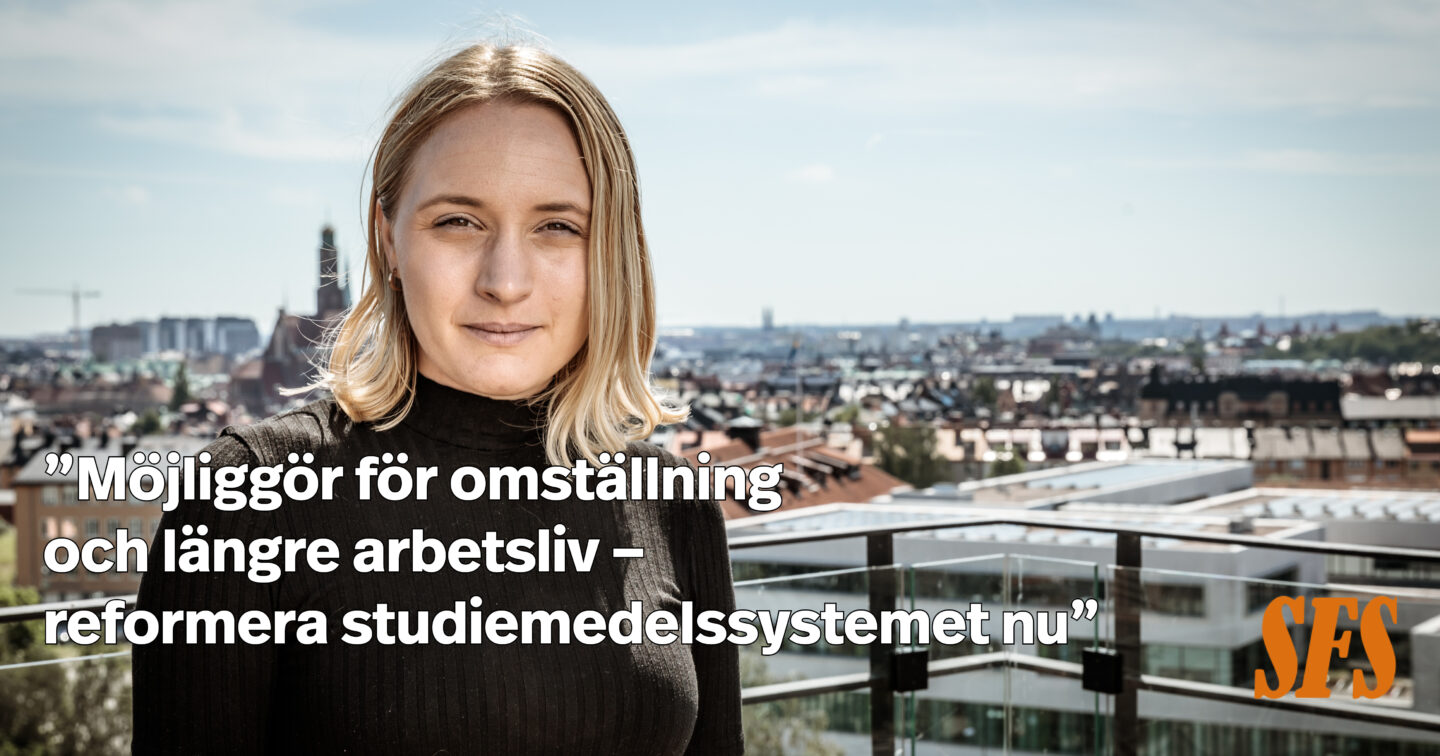DEBATE, the article was published in Sydsvenskan and Helsingborgs Dagblad 21 / 1-2021. Read the article on sydsvenskan.se here
When the number of study grant weeks is as limited as it is today, the opportunity to retrain for many disappears. It writes Linn Svärd, vice president of the Swedish National Union of Students, SFS.
Hundreds of thousands of people in Sweden have just started their spring semester studies. Now is a time of anticipation, but many are worried about their finances, especially older students and students with children. Many also risk, because they have previously studied, that their weeks eligible for study grants end. And all indications are that this is a group that will increase as working life becomes longer and more and more changeable.
Today's students are in post-secondary studies entitled to 240 weeks of study grants. This corresponds to about six years of full-time studies. Nowadays, undergraduate and master's undergraduate education is longer than before. In addition, some training courses will be extended from this autumn, including the medical line. This means that the opportunities to change education and switch to other studies have become smaller than before, despite the fact that the needs of the labor market are changing rapidly.
The current system for study grants needs to be updated according to what society and the labor market look like. The number of weeks eligible for study grants should be extended to correspond to eight years of full-time studies instead of six. The labor market is uncertain. Many have lost their jobs and are considering retraining, others choose to drop out of school immediately after high school due to lack of job opportunities. Figures from the University Chancellor's Office, UKÄ, also show that more and more people are applying for higher education. During the academic year 2019/20, five percent more studied at higher educations than the previous year.
That more people are studying and retraining is positive and necessary for Sweden to be able to handle the challenges facing society. More people need to be trained for the shortcomings as teachers and nurses. But when the number of study grant weeks is as limited as it is today, the opportunity to retrain for many disappears. People are living longer and longer, working at an ever-increasing age and the labor market is changing rapidly. Therefore, it is not reasonable to work with the same thing all your life.
Many people study in order to get a certain job, but that is not the only purpose of higher education. Education has in itself a value for the individual, democracy and society. The opportunity to study promotes both open conversation and the emergence of new and socially important innovations. In a country like Sweden with the goal of being a prominent innovation and research nation, it must be possible to attend educations and courses that do not directly lead to a job. Today's design of the student financial aid system puts obstacles in its way.
Recently announced the government that a new parallel public student aid should be investigated, ie a new supplementary form of student aid. We do not yet know what the investigation ends up in, but SFS hopes for proposals in line with what we demand. A well-functioning system for study grants is crucial for Sweden to be able to offer an equal and open higher education that benefits both society and the individual. design needs to make both education and training valued. Today, the system is short-term and out of date. An update is necessary to create a sustainable and innovative society. Enables adjustment and longer working life - reform the student financial aid system now.
Linn Sword, Vice President of the Swedish National Union of Students.
